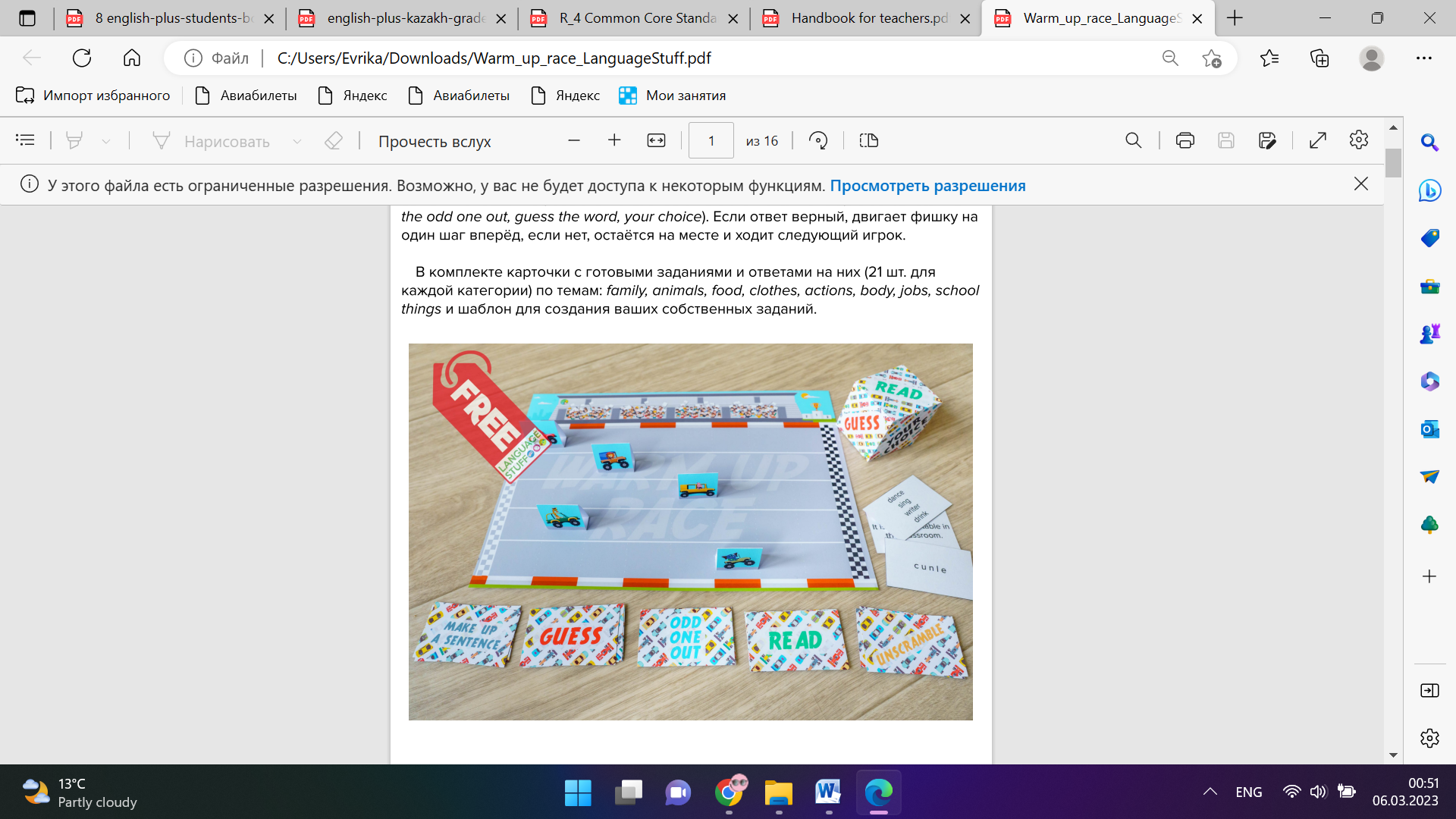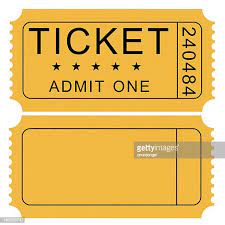
Short term plan: term 4
|
Unit 8 Travel and tourism |
S.Asanov № 38 |
||
|
Teacher name: |
A.Ashimov |
||
|
Date: |
|
||
|
Grade: 9 |
Number present: |
absent: |
|
|
Lesson title |
Travel: nouns. |
||
|
Learning objectives |
9.1.4.1 evaluate and respond constructively to feedback from others 9.2.4.1 understand the main points of supported extended talk on a range of general and curricular topics 9.3.3.1 explain and justify their own and others’ point of view on a range of general and curricular topics |
||
|
Lesson objectives |
Learners will be able to: • Learn compound nouns associated with travel. • Complete a dream holiday quiz . • Learn how to extend your vocabular |
||
|
Value links |
Hospitality: Traditionally a nomadic culture, hospitality has always been an important part of Kazakh culture. |
||
|
Plan |
|||
|
Stages / Time |
Teachers’ actions |
Students’ actions |
Assessment criteria |
Resources |
|
Beginning of the lesson 5 min |
Organization moment 1.Greeting. Ask about the weather. The teacher sets the lesson objectives, letting students know what to anticipate from the lesson. Warm-up
Fasten your seat belts and get ready for the all-round race Lead – In • With books closed, ask students where they usually go on holiday. Elicit some ideas. • Write Dream holiday on the board and elicit the meaning. • Ask: What is your dream holiday? Elicit a range of ideas from the class and write useful vocabulary on the board |
Students' attention is drawn to the lesson. Students discuss the pictures in pairs. Determines the topic and aim of the lesson Students say different words from the picture |
Formative Assessment
Good job! Assessment criteria -Identify detailed information in extended conversation with support |
Pictures Student’s book |
|
Middle of the lesson Presentation part. 35 min |
Ex: 1 P:92 • Read the instructions with the class and make sure students understand what a compound noun is (a noun which is made of two or more words or parts of words). • Students work in pairs to make as many compound nouns as possible. Then they read the text and compare it with their lists. • Check answers and expand the list with any more compound nouns from the text Ex: 2 P:92 • Read the example definition, and elicit a definition of city break (a very short holiday in a city) as a further example. • Allow students time to write their definitions individually and then put students into pairs to test each other. • Ask some students to read their definitions to the class. In a stronger class, check understanding by asking students to put the words into sentences. Ex: 3 P:92 • Students complete the quiz individually, put them into pairs to compare their answers. • Ask some students to tell the class about their partner’s dream holiday. Ex: 4 P:92 • Elicit another combination with tour, e.g. sightseeing. • Put students into pairs to continue writing new combinations. Point out that nouns other than those seen in exercise 1 will need to be used Conclusion during the lesson some tasks differentiated by outcomes of the students and by their abilities. |
Students match the words in the boxes. How many compound nouns can you make? Then look at the My Dream Holiday quiz and compare the compound nouns with your list. Answers: guidebook, return ticket / trip / flight, day trip, suncream, diving equipment, long-haul flight, five-star hotel / accommodation, city break, mosquito net, luxury hotel / accommodation Students write definitions for six of the compound nouns. Work in pairs and test your partner Answers: Students’ own answers. Students do the My Dream Holiday quiz. Do you agree with the results? Why / Why not? Answers: Students’ own answers Students add two nouns from the quiz to each list Answers: 1 sightseeing 2 guided 3 agent 4 brochures |
Descriptor: - work in pairs -compare the compound nouns Total: 1 point Descriptor: - write definitions for six of the compound nouns - work in pairs Total: 1 point Descriptor: - do the quiz - complete the quiz individually Total: 1 point Descriptor: add two nouns from the quiz Total: 1 point |
Cards Worksheets |
|
End of the lesson 5 min |
FEEDBACK Learners provide feedback on what they have learned at the lesson. |
|
Students evaluate each other and encourage classmate with phrases like: Well done! Brilliant! Good job! I like it! . |
Poster
|
Short term plan: term 4
|
Unit 8 Travel and tourism |
|
||
|
Teacher name: |
|
||
|
Date: |
|
||
|
Grade: 9 |
Number present: |
absent: |
|
|
Lesson title |
To be going to |
||
|
Learning objectives |
9.3.4.1 respond with flexibility at both sentence and discourse level to unexpected comments on a range of general and curricular topics 9.5.1.1 plan, write, edit and proofread work at text level independently on a range of general and curricular topics 9.5.3.1 write with grammatical accuracy on a range of familiar general and curricular topics |
||
|
Lesson objectives |
Learners will be able to: • Learn the use of be going to for plans and intentions. • Practise using be going to to talk about plans and intentions |
||
|
Value links |
Tradition: Kazakh traditions and culture have been passed on from one generation to another through oral histories told by traditional Kazakh tribal leaders and elders. |
||
|
Plan |
|||
|
Stages / Time |
Teachers’ actions |
Students’ actions |
Assessment criteria |
Resources |
||||||||||||||||||||||||||||||||||||||||||||||||||||||||||||||||||||||||||||||||||||||||||||||||||||
|
Beginning of the lesson 5 min |
Organization moment 1.Greeting. Ask about the weather. The teacher sets the lesson objectives, letting students know what to anticipate from the lesson. Warm-up
Fasten your seat belts and get ready for the all-round race Lead – In • With books closed, ask students where they usually go on holiday. Elicit some ideas. • Write Dream holiday on the board and elicit the meaning. • Ask: What is your dream holiday? Elicit a range of ideas from the class and write useful vocabulary on the board |
Students' attention is drawn to the lesson. Students discuss the pictures in pairs. Determines the topic and aim of the lesson Students say different words from the picture |
Formative Assessment
Good
jo Бұл материал сайт қолданушысы жариялаған. Материалдың ішінде жазылған барлық ақпаратқа жауапкершілікті жариялаған қолданушы жауап береді. Ұстаз тілегі тек ақпаратты таратуға қолдау көрсетеді. Егер материал сіздің авторлық құқығыңызды бұзған болса немесе басқа да себептермен сайттан өшіру керек деп ойласаңыз осында жазыңыз Short term
plan: term
4 Unit 8
Travel and
tourism S.Asanov № 38 Teacher
name: A.Ashimov Date: Grade: 9 Number
present: absent: Lesson
title Travel:
nouns.
Learning objectives
9.1.4.1 evaluate and respond constructively to feedback
from others
9.2.4.1 understand the main points of supported extended
talk on a range of general and curricular topics 9.3.3.1 explain and justify their own and others’ point of
view on a range of general and curricular topics
Lesson objectives
Learners will be able
to: •
Learn compound nouns
associated with travel. •
Complete a dream holiday
quiz
. • Learn how to extend your
vocabular
Value links Hospitality:
Traditionally a nomadic culture, hospitality has always been an
important part of Kazakh culture.
Plan Stages /
Time Teachers’
actions Students’
actions Assessment
criteria Resources Beginning of the lesson 5
min Organization
moment 1.Greeting. Ask about the
weather. The teacher sets the lesson objectives, letting
students know what to anticipate from the
lesson. Warm-up Fasten your seat belts and get ready for the all-round
race Lead –
In •
With books closed, ask
students where they usually go on holiday. Elicit some
ideas. •
Write Dream holiday on the
board and elicit the meaning. • Ask: What is your dream holiday? Elicit a range
of ideas from the class and write useful vocabulary on the
board Students' attention is drawn to the
lesson. Students discuss the pictures in
pairs. Determines the topic and aim of the
lesson Students
say different words from the
picture Formative
Assessment Good
job! Assessment criteria -Identify detailed
information in extended conversation with support Pictures Student’s
book Middle
of the lesson Presentation part. 35 min Ex: 1
P:92 • Read the instructions with the class and make
sure students understand what a compound noun is (a noun which is
made of two or more words or parts of words). • Students work in pairs to make as many compound
nouns as possible. Then they read the text and compare it with
their lists. • Check answers and expand the list with any more
compound nouns from the text Ex: 2
P:92 • Read the example definition, and elicit a
definition of city break (a very short holiday in a city) as a
further example. • Allow students time to write their definitions
individually and then put students into pairs to test each
other. • Ask some students to read their definitions to
the class. In a stronger class, check understanding by asking
students to put the words into sentences. Ex: 3
P:92 • Students complete the quiz individually, put them
into pairs to compare their answers. • Ask
some students to tell the class about their partner’s dream
holiday. Ex: 4
P:92 • Elicit another combination with tour, e.g.
sightseeing. • Put
students into pairs to continue writing new combinations. Point out
that nouns other than those seen in exercise 1 will need to be
used Conclusion during the lesson some
tasks differentiated by outcomes of the students and by their
abilities. Students match
the words in the boxes. How many compound nouns can you make? Then
look at the My Dream Holiday quiz and compare the compound nouns
with your list. Answers: guidebook, return ticket / trip / flight, day
trip, suncream, diving equipment, long-haul flight, five-star hotel
/ accommodation, city break, mosquito net, luxury hotel /
accommodation Students write definitions
for six of the compound nouns. Work in pairs and test your
partner Answers: Students’ own answers. Students do the My Dream
Holiday quiz. Do you agree with the results? Why / Why
not? Answers: Students’ own answers Students add two nouns from
the quiz to each list Answers: 1 sightseeing 2 guided 3 agent 4
brochures Descriptor: - work in
pairs -compare the compound nouns Total: 1 point Descriptor: - write definitions for six
of the compound nouns - work in pairs Total: 1 point Descriptor: - do the
quiz - complete the quiz
individually Total: 1 point Descriptor: add two nouns from the quiz Total: 1 point Cards Worksheets End of the lesson 5 min FEEDBACK Learners provide feedback on what they
have learned at the lesson. Students evaluate each other and
encourage classmate with phrases like: Well done! Brilliant! Good job! I like
it! . Poster Short term
plan: term
4
Unit 8
Travel and
tourism Teacher
name: Date: Grade: 9 Number
present: absent: Lesson
title To be going
to
Learning objectives
9.3.4.1 respond with flexibility at both sentence and
discourse level to unexpected comments on a range of general and
curricular topics
9.5.1.1 plan, write, edit and proofread work at text level
independently on a range of general and curricular
topics 9.5.3.1 write with grammatical accuracy on a range of
familiar general and curricular topics
Lesson objectives
Learners will be able
to: •
Learn the use of be going to
for plans and intentions. •
Practise using be going to to
talk about plans and intentions
Value links Tradition:
Kazakh traditions and culture have been passed on from one
generation to another through oral histories told by traditional
Kazakh tribal leaders and elders.
Plan Stages /
Time Teachers’
actions Students’
actions Assessment
criteria Resources Beginning of the lesson 5
min Organization
moment 1.Greeting. Ask about the
weather. The teacher sets the lesson objectives, letting
students know what to anticipate from the
lesson. Warm-up Fasten your seat belts and get ready for the all-round
race Lead –
In •
With books closed, ask
students where they usually go on holiday. Elicit some
ideas. •
Write Dream holiday on the
board and elicit the meaning. • Ask: What is your dream holiday? Elicit a range
of ideas from the class and write useful vocabulary on the
board Students' attention is drawn to the
lesson. Students discuss the pictures in
pairs. Determines the topic and aim of the
lesson Students
say different words from the
picture Formative
Assessment Good
jo | |||||||||||||||||||||||||||||||||||||||||||||||||||||||||||||||||||||||||||||||||||||||||||||||||||||





















